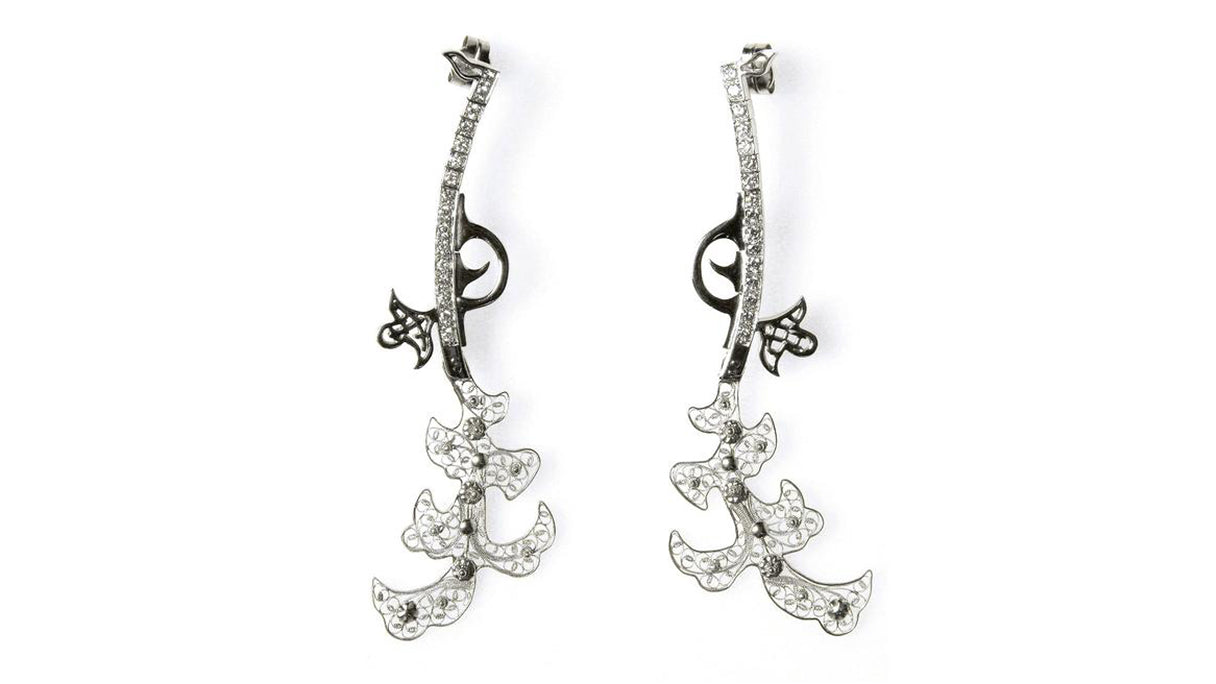Your Cart is Empty
Increasingly, consumers are no longer satisfied with jewellery that just looks nice. Thanks to Blood Diamond, three decades of news reports on toxic waste spills and human rights crises, and the recent likes of Black Earth Rising, word is spreading. Rapidly, we’re awakening to the brutal reality of the supply chains that bring our precious metals and gemstones to the market; from the environmental destruction caused by dirty gold mining to the exploitation of human beings in Sub-Saharan diamond hotspots.
As a result, we hear the term ‘ethical’ bandied around a lot nowadays – but what does it actually mean?
This blog post defines industry-standard gold in comparison to its ethical counterparts, offering a handy guide to your ethical gold options and their benefits.

In short, the term ‘industry standard’ is used to describe any precious material without sound ethical credentials. In the context of gold, this could mean that it’s been recently mined in a way that’s unkind on the environment, via the use of toxic chemicals or on a vast scale, ravaging the landscape and making changes to vegetation, soil, and bedrock. It could mean that its journey into fruition is responsible for violations of human rights; whether that be forced labour, child labour, unfair wages or unsafe working conditions.
Sometimes, at the less extreme end of the scale, gold is referred to as ‘industry standard’ simply because it lacks full traceability. This means that environmental destruction and human rights violations aren’t even guaranteed factors in the supply chain – but without transparency, we just can’t be sure.
At this moment in time, a UK jewel is roughly 30 times more likely to be crafted using industry standard metal than that which is guaranteed to be sustainable – hence ‘standard’. For context, there are 9,435 registered jewellers in the UK; only 300 of those are Fairtrade-certified. This is because industry-standard gold is abundant. It’s cheaper, faster and easier.

To the naked eye, a wedding band cast in industry-standard metal is indecipherable from an identical design cast in an ethical gold - same weight, same colour, same durability. Take Heaven & Hell, the one-of-a-kind pair of earrings conceived by our Founder & Designer, Arabel Lebrusan. Whilst one earring is cast in 18ct Fairtrade Gold from the Oro Verde Mining Cooperative in Colombia and dripping in ethically-sourced diamonds from the sustainable Diavik Mine in Canada, the other consists of gold and diamonds of unknown provenance. The difference? Non-existent at surface level.
But what’s beautiful about cheap, fast and easy? Would you feel happy wearing forever jewels tarnished by doubt?
For us, the definition of ‘ethical’ is simple. Being ethical means being sustainable – and being certain about that.
In 2018, Swiss luxury powerhouse Chopard announced that it would begin using 100% ‘ethical’ gold in all of its jewellery, watches and accessories; news that rocked the ethical jewellery world. For some, commitment from a brand of such global stature was cause for celebration. For others, it only served to highlight the increasingly loose and subjective nature of the term ‘ethical gold’.
On announcing its seminal step, Chopard identified the RJC Chain of Custody as one of its two gold-sourcing routes. Meanwhile, an article written by Advocacy Directory Jo Becker for Human Rights Watch (HRW) explains that gold from RJC-certified refineries cannot be classified as ethical. In it, Becker points out:
“The RJC plays a very important role in the jewellery industry, but its standards do not yet represent industry best practices. While the standard requires companies to document the transactions by which they acquire their gold, it does not require them to conduct human rights assessments on the ground. This means that the gold could still be mined under abusive conditions, such as child labour.”
For us, an ‘ethical’ classification requires more rigorous assessment than that.Here at Lebrusan Studio, we believe that precious materials can only be deemed ethical if they arrive on the market with traceable back-stories. In the context of new materials, this means confirmation of exactly where they originate and how they were traded. If not new, but recycled, this means confirmation of such from a trusted supplier. What’s more, we need proof of these claims. Usually, this means corroboration from trusted third party-certification schemes like Fairtrade or Fairmined.

Fairtrade Gold is the world's first independent ethical certification system for gold. Buying Fairtrade Gold makes a tangible difference to the lives of miners, their families and their communities, because jewellers who source Fairtrade Gold pay an additional premium to ensure this. The Fairtrade Gold scheme helps to improve working conditions and financial security for the miners involved in the metal’s production. Fairtrade Gold also allocates additional funds for investment in the future of the miners' families and communities, through education, medical care or environmental projects. We're very proud to say that in 2011 we were specially selected, along with 15 other jewellers worldwide, to launch Fairtrade Gold.

Fairmined is an assurance label that certifies gold from empowered artisanal and small-scale mining operations. Thanks to the Fairmined Standard, when you buy Fairmined Gold you can rest assured that you're supporting mines that are responsibly managed, with safe working conditions and fair wages the utmost priority. Fairmined is backed by a rigorous third party certification and audit system that ensures that artisanal and small-scale mining organisations meet world standards for responsible practices. To help organisations reach these standards, they facilitate organisational and social development and deliver environmental protection.

Though not traceable to its origins, recycled gold is the most environmentally sustainable option of all. Global warming has reached crisis point, and it’s vital that we begin celebrating materials that are already above the ground and slow the rate at which we’re consuming water, land and energy. Though lacking in transparency, our recycled metals come directly from 100%, single-recycled sources.
